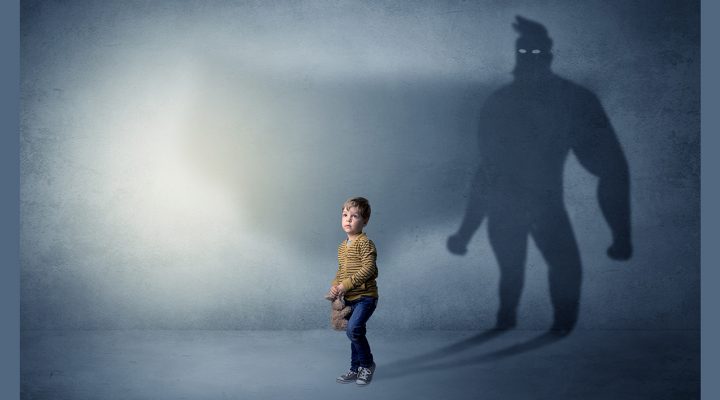“Whether Trump means it or not is kind of irrelevant because he’s saying the things to people who are hurting,” filmmaker Michael Moore told a gathering of voters in his 2016 documentary TrumpLand. “It’s why every beaten down, nameless, forgotten working stiff who used to be part of what was called the middle class loves Trump. He is the human molotov cocktail that they’ve been waiting for, the human hand grenade they can legally throw into the system that stole their lives from them.”
Then after naming all the ways middle class people have been hurt by the system, Moore memorably proclaimed, “Trump’s election is going to be the biggest ‘F*** you’ ever recorded in human history. And it will feel good.”
That was eight years ago.
When we consider why Donald Trump voters were angry in 2016, it’s true many of them were moved by the pain of feeling left behind economically.
Moore suggested at the time that, despite using their vote as anger management, Trump voters would regret it in the weeks and months ahead. But contrary to his expectations, there was another significant angry segment of Trump voters whose support for Trump would only grow — white evangelicals.
“Many of the reasons white evangelicals are angry are based on theologically fueled prejudice against those they fear.”
Many of the reasons white evangelicals are angry are based on theologically fueled prejudice against those they fear rather than any legitimate hurt from being on the underside of “the system.” They are led by men like John Piper, who think men should be in charge of women, and others like Al Mohler, who want to enforce their convictions about sexuality on the general public under the threat of prosecution.
So white evangelical hurt that comes from lost privilege and power is easy to dismiss.
Still, whether their hurt is legitimate or not is “kind of irrelevant” because their feelings are real and need to be processed or their hurt will release as pent-up rage that will destroy us all if they gain the power to promote the retribution Trump vows to bring during a second term.
What we need to consider is why white evangelicals are strangers to grief and how those of us who have left white evangelical spaces can enter into grief as a path toward a justice that restores.
The danger of sorrow in glory hierarchies
For most of my life, I lived in the crystal-clear certainty that justice meant every person who has ever lived will spend eternity either in heaven or hell. Everyone who refused to submit to the most high God would be punished forever in hell. But the relatively few of us who trusted in Jesus taking our punishment on the Cross had the hope of resurrecting in heaven forever.
This meant when gramma died, we desperately had to hope she believed in penal substitutionary atonement. If she didn’t, then God would immediately rip her from her hospital bedsheets and hurl her fragile, tired body into the flames of hell. In this reality, our hope would be forgetting she ever existed or that God would transform our desires to delight at the sight of her suffering.
But if she believed in penal substitutionary atonement, she could sing songs, eat grapes and have painless pleasures forevermore. In this reality, even though we would feel sorrow over her absence to some degree, we sorrowed not as those who didn’t have the hope we had for her afterlife in heaven.
Ryan Chase, of Desiring God, explains: “Those who believe in the resurrection of Jesus are decidedly not to grieve in whatever way feels right to us, nor are we to grieve like those who have no hope. Rather, we are called to grieve in ways that make much of Jesus, our glorious Savior who died and rose and is coming again.”
To those who are feeling the unspeakable depths of loss, Chase warns, “Pain does not justify sin; only Christ can justify sinners. And in Christ, there is a greater comfort available to the heartbroken than handing us over as slaves to our own emotions.”
The glory hierarchy’s ‘golden opportunity’ of cancer
When my wife, Ruth Ellen, was diagnosed with stage three breast cancer in 2021, some evangelicals told us it was a shame we weren’t attending a conservative evangelical church anymore. But as the chemo treatments started, her hair began to fall out and her body began to brittle away to the point where I looked into her eyes and didn’t recognize her anymore, what we needed was others to be present in the unspeakable grief of our condition.
Every morning, she woke up, put on her clothes and wig and drove to work, while I took care of our five kids under the age of 11. Then at the end of every work day, when she collapsed on the couch, I kept going, cooking, cleaning, putting kids to bed.
“Neither of us could imagine going through that while having to accept and celebrate white evangelical glory hierarchies.”
Neither of us could imagine going through that while having to accept and celebrate white evangelical glory hierarchies.
In Don’t Waste Your Cancer, John Piper says while cancer for non-Christians is a “punitive pathway to hell,” cancer for Christians is a “gift” and a “purifying pathway to heaven” that is “designed for us by God.”
Piper says, “The aim of God in our cancer (among a thousand other good things) is to knock props out from under our hearts so that we rely utterly on him.”
To those who are suffering through cancer treatments, Piper warns it is a sign of unbelief if you read too many articles about it. But he doesn’t name the number of articles where you cross into unbelief. So cancer patients are left to sit on their couches and wonder.
He tells cancer patients: “Cancer is designed to destroy the appetite for sin. Pride, greed, lust, hatred, unforgiveness, impatience, laziness, procrastination — all these are the adversaries cancer is meant to attack. … Don’t waste the power of cancer to crush these foes.”
Then Piper climaxes his cancer hierarchy theology by saying cancer is a “golden opportunity to show that (Christ) is worth more than life.”
Reading those sentences fills me with a quiet rage. Who in the hell does Piper think he is to tell a 39-year-old mother of five who is working full time while undergoing chemo treatments, radiation and four surgeries that her cancer is a gift meant to knock props out from under her to destroy her sins like laziness and procrastination? Does he really expect me to look down at her on our couch at the end of a long day and share his warnings to her? Is Jesus really sitting on a throne somewhere upset at us for clicking on one too many articles, for feeling the weight of it all too much, for not explicitly talking about his glory for exposing our sin and knocking out our props?
Being human is to be embodied
If Jesus is God, then Jesus would be OK with being human. And when Jesus wept, he didn’t weep while quoting an enthronement Psalm. He just wept. Because that’s what humans do.
Humans have bodies that grief passes through. Rob Bell reminds us: “Grief is not a concept. Grief is not an idea. Grief is not an arrangement of thoughts. (Grief) can’t think it’s way out. Because grief is something that passes through the body. So you’ll notice lots and lots of people are disconnected from their body.”
The reason white evangelicals are strangers to grief is they have to think about grief as a concept in a glory hierarchy theology that disconnects them from their bodies. They’re so caught up in dreaming of a perfect body in a perfect life and in warning against engaging the feelings of this body in this life that the grief they feel from the hurts they hold has nowhere to go. Bell says, “Grief requires us to be in our bodies, and what grief is asking to do is simply pass through. … It’s asking for expression. … And we fight it, numb it, resist it, repress it.”
The punitive presence of cruelty
In The Reckonings: Essays on Justice for the Twenty-First Century, Lacy Johnson speaks of witnessing pain in the pediatric cancer ward. She says, “Here pain is sometimes experienced as fear, or bewilderment, or the ghost of future grief.”
She continues, “It is telling, I think, that the word ‘pain’ finds its root in the Latin poena, or ‘punishment, penalty, retribution.’ To bestow pain on another is cruelty. To relieve it is mercy.”
“The language of Trump and Piper is the language of punishment, penalty and retribution.”
The language of Trump and Piper is the language of punishment, penalty and retribution. It is the cruelty of whoever sits enthroned atop the glory hierarchy bestowing pain on those below them. In this arrangement, grief like compassion is forced into submission to embrace a justice of cruel violence and retribution.
Violently punishing the larger body
The way we love ourselves is the way we love our neighbors. So when we are too afraid to engage our own pain, we will doubt the pain of others.
“A lot of times what happens is a person isn’t connected with this body,” Bell says. “So no wonder warnings about the larger body don’t make any sense.”
When communities from the larger human body claim to be suffering from sexism, racism, classism, homophobia or transphobia, those who are too afraid to engage their own pain will doubt the pain of those they fear.
In the punitive mind, whoever is lower on the hierarchy must consider their pain as the impetus toward submission or as the birth pangs of eternal punishment. The punitive mind considers women who don’t submit to men and LGBTQ people who don’t remain celibate as threats. So they must not be seen or heard from, even in Disney movies.
Healing in our union with the larger body
On the other hand, to grieve is to allow our bodies to pass through the pain. When we acknowledge our wounds and give voice to our hurt, we not only recognize what’s going on within ourselves, we become aware of the wounds and hurts of others.
Being present with the pain of others will cause those who are in the glory hierarchy but who have a seed of empathy within them to begin doubting their certainties that dehumanize the other. According to philosopher Elaine Scarry, “To hear that another person has pain is to have doubt.”
It’s hard to fight with certainty for the removal of LGBTQ people from movies and books when you’re friends with them. That’s why Desiring God warns against “The Enticing Sin of Empathy.” It’s difficult to claim LGBTQ people are already being punished by God for being unthankful and self-centered when you realize how kind they are and how horribly your community has treated them. Thus, the more we doubt our certainties, the more we’ll open up to listen, learn and love.
In a song titled “Give Me Doubt,” The Brilliance puts it this way:
Give me doubt so I can see my neighbor as myself.
Give me doubt so I can lay all my weapons on the ground.
When the armor of God is too heavy for peace, give me doubt.
Diminishing pain through friendship
In his beautiful new movie Good Grief, Dan Levy explores how friends love each other through loss by expressing their pains together in community. Levy wrote and directed the movie after losing his grandmother and his dog and experiencing the grief of the COVID pandemic. Each of the friends in the movie have to move through their individual feelings as well as give space for the others to have inconvenient feelings.
“To avoid sadness is to avoid love.”
But as one character puts it, “To avoid sadness is to avoid love.”
Because entering into grief opens us up to the wounds of others, it moves us to act through love toward justice by facing our own complicity in their pain.
Scarry says, “The act of verbally expressing pain is a necessary prelude to the collective task of diminishing pain.”
Healing takes time
In Rob Bell’s latest book, Where’d You Park Your Spaceship, one character says, “This is going to take a while. Healing a universe often does.”
When we consider the 2024 election, the divide runs far deeper than two parties or two men. Entire communities are in exile from one another, all having their own unique hurts. One side is overwhelmingly propped up by the support of white evangelicals. And white evangelicals have submitted to a glory hierarchy that avoids sorrow, glorifies disease, disembodies its followers and promotes punitive justices of cruelty. Healing these hurts is a seemingly impossible task.
We may wish we could quickly get over these collective wounds. But as Lacy Johnson reminds us, “That’s not how grief works.”
The morning after Trump was elected in 2016, she told her children around the breakfast table: “Yesterday, and all the days before that, it was our job to stand up to bullies. That is still true today, especially true today, even if that job seems so much harder now. It means we will have to be very strong and very brave. But more than anything else, we have to love one another fiercely — so, so fiercely.”
The way we do that, she suggests, is to grieve by naming the rage we feel toward those who are hurting us all until the rage transforms us to “work together with others for our mutual joy.”
She concludes: “Justice means we value the lives of everyone equally and protect and support them equally. It means we recognize and protect what is radical and unique about every single person — even those who cannot return this recognition. Justice means that children are allowed to be children, and then to enter adulthood with safe passage, at their own pace, in their own way. Justice means we pass responsibility for keeping peace from one generation to another. That we return our children from war and teach them to put down their guns; it means we never pick them up again, not ever. It means we teach everyone, from birth, that they are capable of nurturing, of healing, of compassion, of love. Justice means we repair instead of repeat. Justice is the permission I give myself to go out running, to trust my own strength and fortitude to fight off danger; or better yet, to trust that no danger will befall me at all. Justice is what makes it possible for me to be sitting on the kitchen floor with my children, who are laughing and telling each other silly jokes, and to stay right here in this moment, laughing also. This is a new moment in my life, a new place to simply be; it didn’t exist before and I couldn’t have made it alone. Justice means everyone has a place like this — places we make together, for one another, for us all.”

Rick Pidcock
Rick Pidcock is a 2004 graduate of Bob Jones University, with a Bachelor of Arts degree in Bible. He’s a freelance writer based in South Carolina and a former Clemons Fellow with BNG. He completed a Master of Arts degree in worship from Northern Seminary. He is a stay-at-home father of five children and produces music under the artist name Provoke Wonder. Follow his blog at www.rickpidcock.com.


